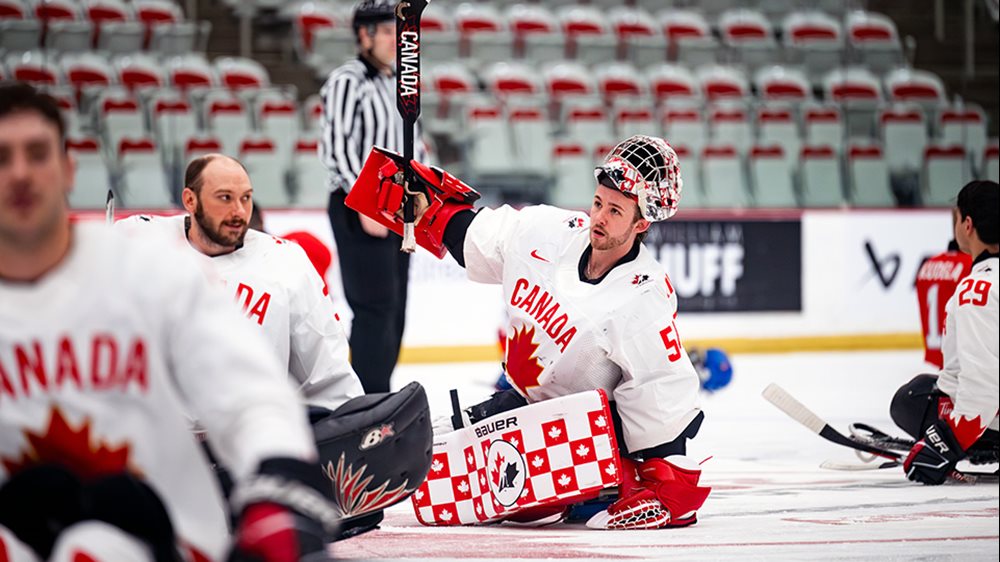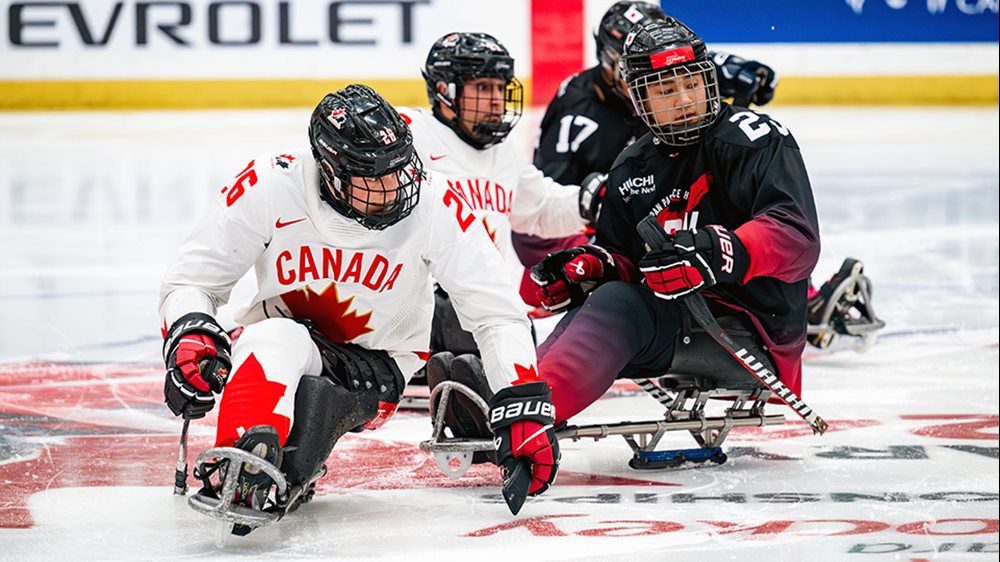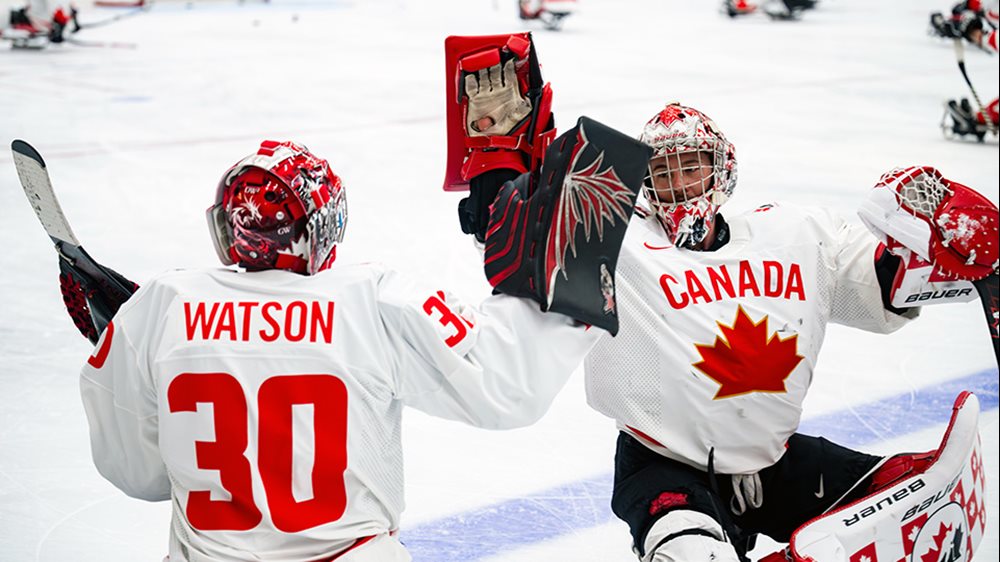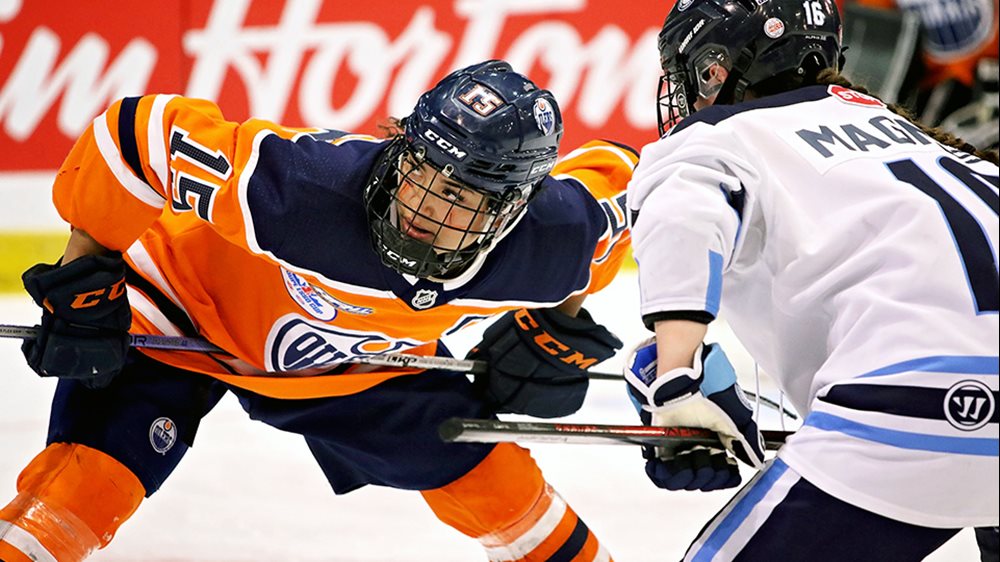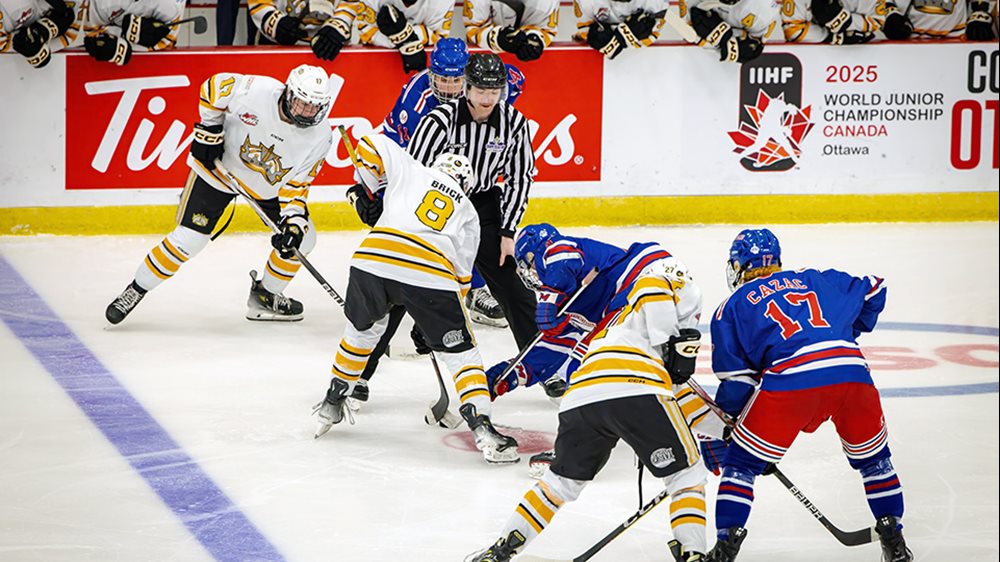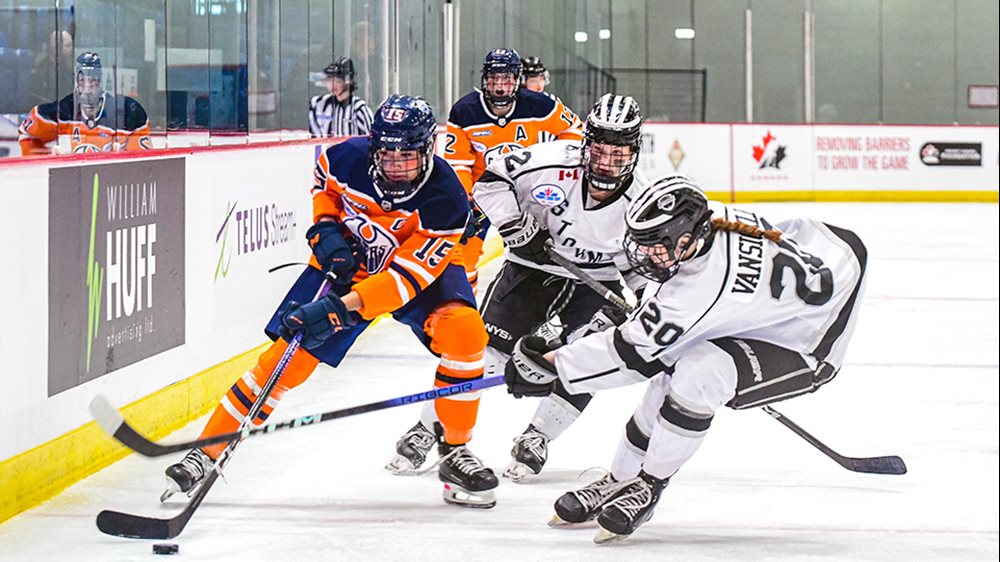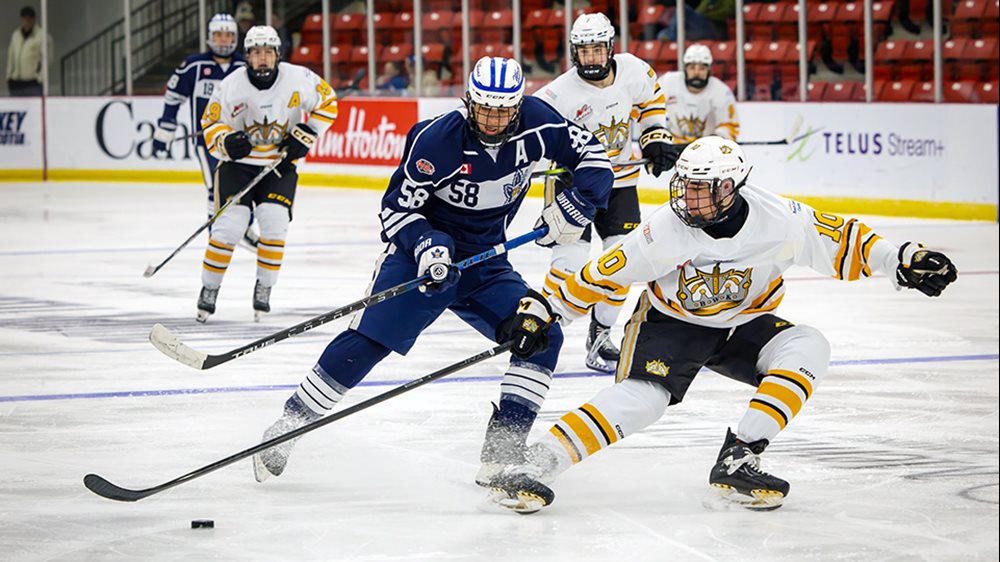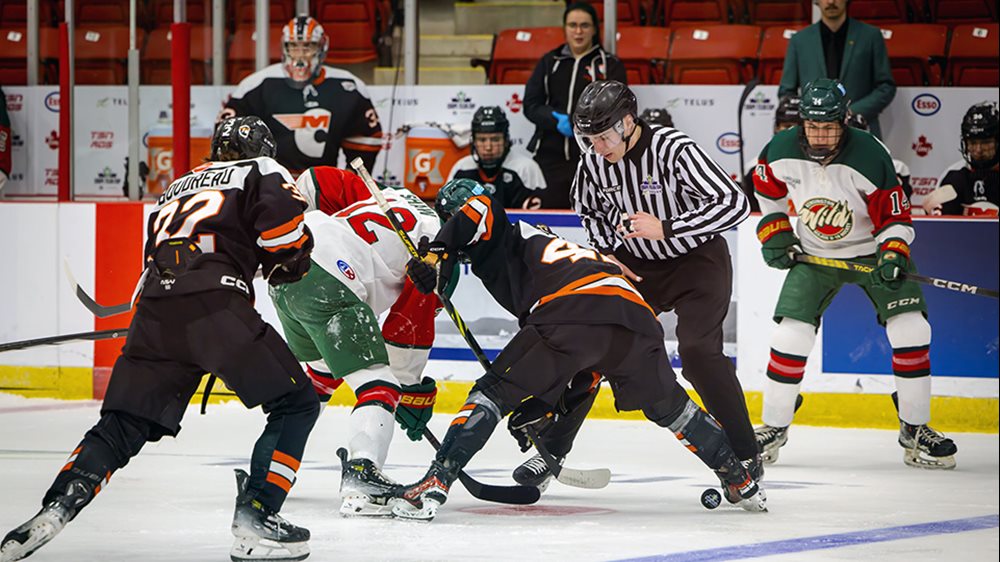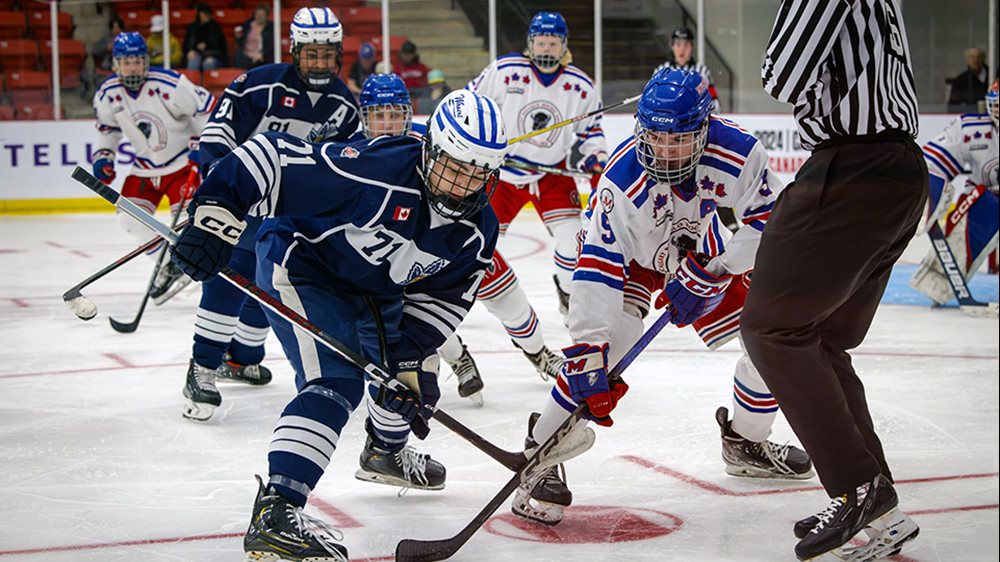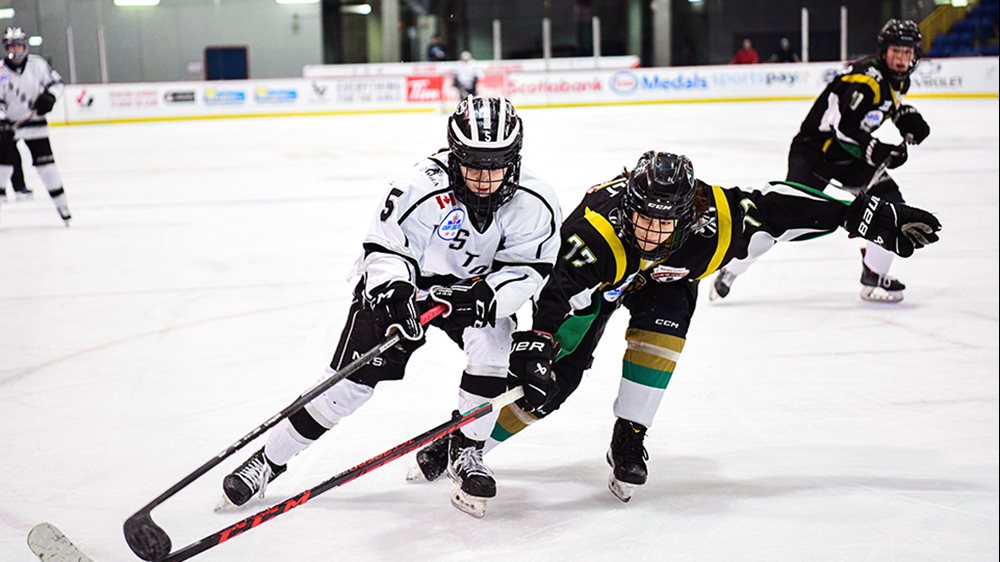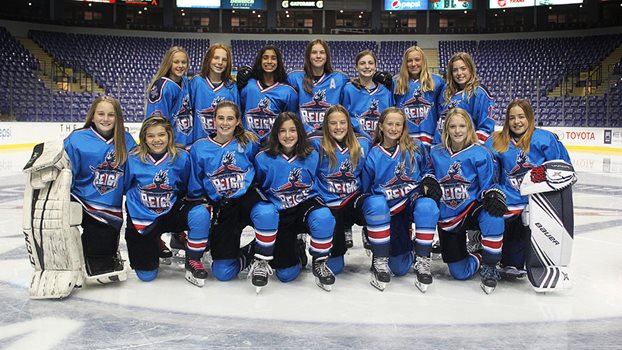

A new Victorian reign
A desire to grow female hockey in Greater Victoria spurred the creation of the Capital Region Female Minor Hockey Association
Growth, prosperity and longevity are three common descriptors printed in historical archives about Queen Victoria’s reign of 63 years and 226 days in Great Britain from 1837 to 1901.
The Capital Region Female Minor Hockey Association (CRFMHA) – the first all-girls minor hockey organization in the Greater Victoria region – is seeking steady evolution and development as it embarks upon its inaugural campaign. In that respect, it fits that the association stylized its 13 teams as the Victoria Reign after a name-the-team contest that inspired suggestions from over 130 registered players.
A serious push to give girls living on Vancouver Island an alternative to playing for predominantly male co-ed teams began in early 2017 under the leadership of Ian Fleetwood, now the president of the CRFMHA.
Fleetwood says it is challenging to offer robust programming within the organizational structure of a largely male-focused minor hockey association.
“Those programs were never completely independent, never completely free to make its own decisions about team size,” explains Fleetwood. “So, the infrastructure that supported female hockey was not truly dedicated to female hockey. You would end up with difficulties with unsustainability of teams – associations might have a team one year and then not have it next year. You would then have girls with no guarantee of a place to play.”
According to Fleetwood, there was a “34 per cent decline in female registration in Victoria” in the four years leading up to the institution of the CRFMHA.
There was compelling evidence to suggest the venture would grow the game; eight female hockey associations were already operating in the Lower Mainland and Fleetwood helped operate a program in the Saanich Minor Hockey Association that saw registration rise from 11 to 74 athletes over several seasons.
Mission accomplished: 178 athletes have registered to play for a Victoria Reign competitive or recreational team as of mid-October, and that number is poised to rise as the association hosted a sold-out First Shift program on Oct. 18. The enrolment figures were so strong that there is now a Juvenile team for the first time in Victoria.
Playing a paramount role in the rise of the CRFMHA was B.C. Hockey, which called for the creation of more female hockey associations in its Female Hockey Report, released in early 2019.
“We have found that they are the best method of growing female hockey,” says Allie Moore, the female hockey manager for B.C. Hockey. “They tend to have the strongest recruitment initiatives, they bring in more female coaches and they tend to offer more playing opportunities for female players who want to play in the female stream.”
B.C. Hockey collected data for its report by conducting phone interviews with 30 minor hockey associations and engaging in discussions with Hockey Canada, Hockey Alberta and Hockey Nova Scotia to get feedback about the female hockey model in those respective organizations.
Shortly after the release of the report, Fleetwood’s team was invited to apply for an all-new all-female hockey association directly with B.C. Hockey. The CRFMHA was created in March, and less than two months later, the Vancouver Island Amateur Hockey Association gave its stamp of approval.
The drive to recruit players began in earnest immediately after association authorization. CRFMHA volunteers and executives operated development programs for competitive and recreational players, hosted a slew of Esso Fun Days and groups of volunteers attended festivals, parades and sporting events in the region to build buzz leading up to the season. B.C. Hockey offered an assist by publicizing the news of the CRFMHA through its mailing list.
One of the players registered into the CRFMHA is 18-year-old Boa Feddersen. Feddersen is playing on her first hockey team this season – in fact, she just started learning how to skate 11 months ago. She enjoyed skating so much that she was looking to play hockey in 2019-2020. Getting to play with female teammates was too good of an opportunity to ignore.
“I am having so much fun,” says Feddersen. “I played some competitive sports as a kid, but none recently, so it is nice to be on a team again.”
The CRFMHA is making Feddersen’s introduction to the game more accessible through development programming and by allowing her to play as an overage player on the Midget C1 squad.
“I started out playing with the Juvenile group, and I found they were too far above my level,” remarks Feddersen. “It was nice to play down because I get more time to practice and work on skills.”
Her experience has been so enjoyable that she is already is participating in the coach mentorship programs offered by the organization and volunteering her time to work with younger Reign players.
Hockey dad Matt Playle is also grateful for the CRFMHA because it provides his daughter Arye, 8, with a better social experience than the one she had as a member of an integrated Novice team with just “one, maybe two female teammates” last year.
“The experience has been much better,” says Playle. “She goes out on the ice and enjoys herself with her teammates. She loves to go to hockey practice.”
Playle’s older daughter Kairi is also playing in the CRFMHA this year after only playing the game through First Shift events in 2018-19.
Fleetwood says he is looking forward to the CRFMHA’s continued growth – there are plans for two more teams to be added in 2020-21 - and he takes satisfaction with positive developments that have occurred in the early days in the reign of the Victoria Reign.
“The best satisfaction is seeing a five-or-six-year-old girl on the ice enjoying the game and we have seen a lot of that. There is also a lot of satisfaction with hearing parents tell us that ‘if it wasn’t for this association, my daughter wouldn’t be playing hockey. We have a Spanish exchange student who has never played hockey before playing on one of our teams. Creating these opportunities for girls to play the game is truly rewarding.”
Learn more about how Hockey Canada is supporting minor hockey associations in Canada grow the women’s game by clicking here.
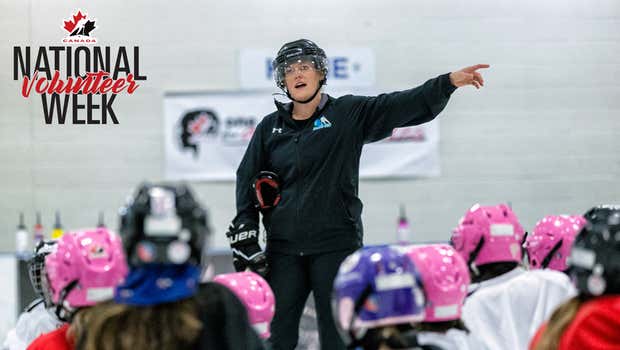
Making an impact in the North
A game-changer in women’s hockey, Kaylee Grant tirelessly gives her time across the territories, volunteering to ensure opportunities exist for women and girls
The first thing Kaylee Grant did when she moved to Yellowknife was find a hockey team.
The operating engineer took a one-year term to gain experience in her industry. Twelve years later, she’s still in the Northwest Territories and hockey has been a reason why she calls it home.
“You gravitate to what you know, and I knew sports,” Grant says. “When you join a sport, you instantly have 17 friends and a group where you feel accepted through a common goal and interest. When I moved to the North, I didn’t know how else to meet friends, so I went to the rink right away.”
Grant grew up around the rink in Antigonish, Nova Scotia. The community was also a hockey hotbed, supporting its Junior A, Junior B and university teams. Being around that passion and community made hockey an important part of her life.
“Playing hockey is what we did,” Grant says. “The community rallied behind our teams and the rinks were full, the atmosphere was great, and hockey was so prominent.”
She played minor hockey in Nova Scotia before moving to Newfoundland and Labrador to play at Memorial University. At 23 years old, she made the move to Yellowknife and knew she would find her community inside a rink.
“I find that the easiest thing to do when you come to a new place to meet people is through sport,” she says. “With joining a hockey team, I was already creating a group of people that were like-minded in interests and similar age. Plus, there are so many opportunities in the North to grow as coaches, players and mentors that have been so helpful.”
Grant’s love for the game wasn’t just as a player—she expanded her knowledge
by getting into coaching while in Nova Scotia. She started as an off-ice
coordinator with the Antigonish Bulldogs women’s under-18 team.
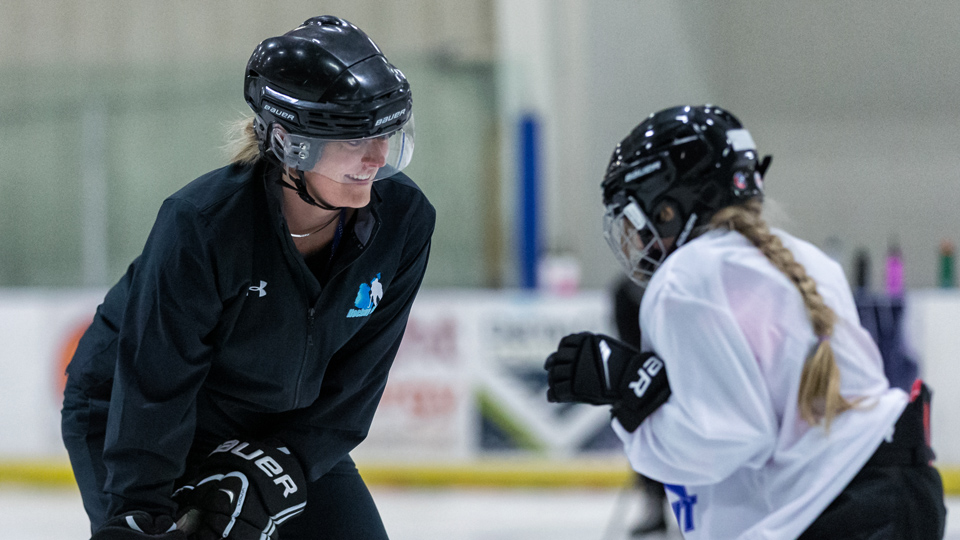
She did her Coach Development 1 training before getting her High Performance 1 training and evaluation certification. She continued to pursue additional coaching certification and training over the years to educate herself and give back to her community.
“I think seeing the female game continuously grow and develop that keeps me interested,” Grant says. “I love to see the progress in my players. I love seeing these players grow and adapt as individuals. Seeing them get involved in coaching is the coolest part.”
Her coaching philosophy is to develop a player’s passion for the game, be a role model and create an environment that is positive for women and girls.
Coaching and mentoring young girls are important to Grant, and she saw that path was through high-level opportunities, particularly by becoming a facilitator to drive more players into the coaching route. She has been working with Hockey North and the Hockey Canada Women Master Coach Developer program, which is focused on removing barriers to coaching education for women.
“Kaylee has volunteered at pretty much every level and she’s getting more involved with training coaches and being a clinician, which is an amazing progression for her,” says Kyle Kugler, executive director of Hockey North and a close friend of Grant. “She’s a great ambassador for hockey by giving back to other coaches through her experiences and helping with their development.”
Through being a volunteer coach, Grant has been able to experience some highlights with her teams, including as head coach for the Arctic Winter Games and Canada Winter Games, and as an assistant coach for Team North at the National Aboriginal Hockey Championship.
“Hockey North has given me so many opportunities and having that support has impacted me as a coach,” Grant says. “I enjoyed every year with those territorial teams and those experiences are a very big reason why I stay here – the coaching opportunities and knowing that we continually have room to grow.”
Another event that Grant was a key volunteer for was the inaugural One For All festival held in Yellowknife in February. It was a four-day event for women and girls from across the N.W.T. and Nunavut that included goaltending clinics, on-ice scrimmages and other off-ice experiences. The event was launched in partnership with Hockey Canada and Hockey North to celebrate the sport and grow grassroots hockey in the North.
“Kaylee is one of our co-leads in the North, and when we set out to deliver this programming in Yellowknife, it was a no-brainer that she would be involved. And typical Kaylee, she just runs with a task and completely owns it,” says Katie Greenway, manager of women’s and girls’ hockey with Hockey Canada. “To have champions like Kaylee that dedicate themselves to their community and sport is so important.”
Giving back through coaching is just what Grant does—it’s like a hobby for her and she does it for others and to see more women in the sport, not for what it could bring to her.
“I’ve known Kaylee for a few years now and she has so much on her plate, but she never says no,” Greenway says. “She doesn’t do it for the accolades, but out of the goodness of her heart with a smile on her face. She’s fantastic and is really impacting everyone that she comes across.”
Grant’s impact on hockey in the North has been felt by many of the girls she has coached, mentored and played with over the past 12 years, but it’s the bigger picture that is most important to her.
“I’m not going to say that myself, individually, has drastically impacted female hockey in the North. I think I am a very small portion of what’s been going on in the North in the last 10 years,” Grant says. “I would like to think that I have helped develop more female coaches and I’ve been a good role model. I think if I have impacted hockey in the North, its pushing players to want to coach a little bit, but it’s a collective—everyone has left their mark on the female game.”
For Kugler, as the lone administrator for Hockey North, having volunteers like Kaylee is so critical to the work and development of hockey players.
“I think volunteers are essential for the delivery of anything in small communities in the North,” he says. “[Kaylee] takes on more than we even realize. Coaches have a huge influence on teams and athletes and she’s a positive role model and advocate for female hockey. She’s selfless with her time and she’s just an awesome person.”
Interested in becoming a coach? Visit HockeyCanada.ca/Coaching, or contact your local hockey association or Hockey Canada Member for more information.
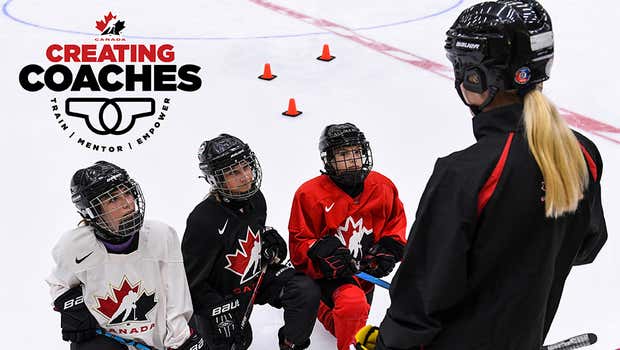
Eight student-athletes to participate in Creating Coaches program
Creating Coaches’ third cohort runs until end of 2024-25 season
CALGARY, AB – Hockey Canada and U SPORTS have announced the eight student-athletes who have been selected to join Creating Coaches, a program designed to increase the number of women coaching hockey in Canada, as part of its third cohort which will run during the 2023-24 and 2024-25 seasons.
Launched in 2021 through a partnership between Hockey Canada, U SPORTS and the Hockey Canada Foundation, Creating Coaches provides training and mentorship to current U SPORTS student-athletes who are concurrently looking to begin their coaching careers. Participants in the program serve as an assistant coach with a U13, U15 or U18 girls’ hockey team for the duration of the two seasons and receive coach education, professional development opportunities and an honorarium.
This year’s cohort includes student-athletes from eight U SPORTS women’s hockey programs across three of its conferences:
• Alexis Anonech (York University, OUA)
• Emmy Fecteau (Concordia University, RSEQ)
• Lyndsey Janes (Mount Royal University, CW)
• Madison Laberge (Nipissing University, OUA)
• Isabelle Lajoie (University of Alberta, CW)
• Sophie Lalor (University of Saskatchewan, CW)
• Sarah-Maude Lavoie (McGill University, RSEQ)
• Chihiro Suzuki (Guelph University, OUA)
“We are thrilled to welcome these eight accomplished student-athletes to Creating Coaches and look forward to working with them during the next two seasons,” said Marin Hickox, Hockey Canada’s vice-president of women and girls’ hockey. “Creating Coaches is an important program to support and develop hockey’s next generation of leaders and we are grateful to the U SPORTS coaches who nominated this talented group.
“Girls who have been coached by a woman are more likely to transition into a coaching role at the end of their playing careers, and it is our intention that this program will positively influence the recruitment and retention of girls and women in leadership roles in the sport.”
Since its inception, Creating Coaches has included student-athletes from 16 U SPORTS women’s hockey programs and all four of its conferences.
“The eight student-athletes selected to join Creating Coaches are tremendous ambassadors for hockey and university sport in Canada,” said Lisette Johnson-Stapley, chief sport officer at U SPORTS. “We have already seen the positive impact that this program has had inspiring young girls in communities across the country and we are excited for Alexis, Chihiro, Emmy, Isabelle, Lyndsey, Madison, Sarah-Maude and Sophie to begin their coaching careers while continuing to represent their universities with pride as student-athletes.”
The Creating Coaches selection committee includes representation from Hockey Canada, U SPORTS, Hockey Canada’s Members and the Hockey Canada Foundation Board of Directors.
During National Coaches Week, Hockey Canada is celebrating the positive impact that coaches have on athletes in communities from coast to coast to coast, with #ThanksCoach resources and features shared here.
To learn more about Hockey Canada, please visit HockeyCanada.ca, or follow along through social media on Facebook, X and Instagram.

2022 BFL Female Coach of the Year winners announced
22 recipients selected across Community, Competitive and High Performance categories
CALGARY, Alta. – In partnership with BFL CANADA, Hockey Canada has announced the national and provincial/territorial winners of the 2022 BFL Female Coach of the Year Award, which recognizes coaches who led by example in demonstrating fair play and a commitment to the development of every player and staff member, and made significant contributions to the game during the 2021-22 season.
Nominated by parents and players from coast to coast to coast, three national and 19 provincial and territorial award winners were chosen by the selection committee, which included Olympic gold medallists Cassie Campbell-Pascall, Gina Kingsbury and Caroline Ouellette, Teal Gove of Hockey Canada and Sacha Vaillancourt, vice-president and national practice leader of sports and leisure with BFL CANADA.
Sarah Hilworth, the head coach of the women’s hockey team at the University of New Brunswick, earned the national award in the High Performance category and will receive a $5,000 bursary and an invitation to Canada's National Women's Team camp this summer. Since joining the Reds, Hilworth has consistently demonstrated the importance of sportsmanship, empowered her players to make a difference on and off the ice and contributed greatly to her community.
Laurence Beaulieu and Amy Doerksen are the national winners in the Competitive and Community categories, respectively, receiving a $2,500 bursary and Hockey Canada merchandise package.
A former professional hockey player with the Canadiennes de Montréal, Beaulieu’s coaching career began five seasons ago. Through her passion for the game, the Titans du Cégep Limoilou assistant has already made a name for herself behind the bench.
As a Timbits U7 coach in Brandon, Man., Doerksen has gone above and beyond to create a positive hockey experience, while providing a safe and inclusive environment for all participants. Additionally, she has emphasized the importance of having fun through organizing team activities and special events for her local hockey association.
In addition, 19 provincial and territorial award winners were recognized and will each receive a $1,000 bursary.
Winners in the Competitive category included: Mandy Layden (Alta.), Brittany Kirby (B.C.), Tess Houston (Man.), Abby Clarke (N.B.), Grace Hatcher (N.L.), Josanne Deveau (N.S.), Stephanie Pascal (Ont.), Rebecca Babiak (P.E.I.) and Tori Spencer (N.W.T./Y.T./Nvt.).
Winners in the Community category included: Lesley Burton (Alta.), Heather Neale Furneaux (B.C.), Katie Peddle (N.B.), Monique Organ (N.L.), Erin Crowell (N.S.), Kiara Jefferies (Ont.), Nadine Moore (P.E.I.), Laetitia Létourneau (Que.), Barb Bryden (Sask.) and Jessica Cox (N.W.T./Y.T./Nvt.).
For more information on Hockey Canada, please visit HockeyCanada.ca, or follow along on Facebook, Twitter and Instagram.
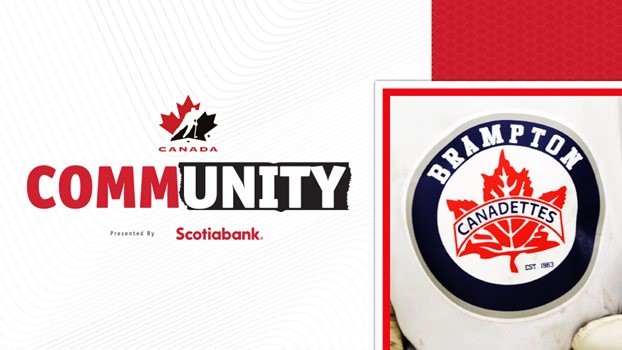
Community comes together for Canadette
When Amy St. John was seriously injured in a tragic accident last December, her hockey family rallied to support her mother and four siblings
When tragedy struck one of their own, the hockey community in Brampton came together.
Last December, Amy St. John, a 12-year-old goaltender for the U15 Brampton Canadettes, was seriously injured when she was struck and dragged by a school bus on her way to school.
Paramedics rushed her to Toronto Sick Kids Hospital, but she was transferred to St. Mike’s Hospital due to the extent of her injuries. Amy suffered a crushing injury to the back of her pelvis and significant nerve damage to her left leg, and needed reconstructive surgery.
When Tina Kelloway, vice-president of the Brampton Canadettes Girls Hockey Association (BCGHA), heard about Amy’s accident, she reached out to Amy’s mom, Joelle, right away to see how the association could support the St. John family.
“I was absolutely heartbroken and just thinking about it still makes me want to cry,” Kelloway says. “I’ve known Amy for years as she came up through our house league divisions and hockey was always a joy for her – she adored playing and she always has a smile on her face when she came to the rink.
“I can’t begin to imagine the trauma Amy was going through and what her family had to go through with her. It was such a horrendous event.”
Amy is the youngest of five children. With the accident, Joelle has been unable to work in order to care for her daughter.
With the significant financial strain to the family, as well as the extent of physiotherapy and care that Amy needed right after the accident and into the future, the Canadettes quickly came together to figure out a way to help.
“Another mom and I started the fundraising page, but asked the league to step in to help build awareness,” says Jill Hartling, the Canadettes team manager. “The girls were shocked and devastated for what happened to Amy and the team just wanted to jump on board and help her.”
Over the Christmas period, the team put together a gift basket with beauty products and arts and craft materials for Amy to help life her spirits.
“Amy was home at the time when we dropped that basket off and it was nice to talk with her and see how she was doing,” says Hartling. “The team rallied around the St. John family and they were always thinking of Amy this season.”
The league previously held a fundraiser in 2018 for another player who needed help after an accident and used that experience to build awareness for Amy and her family. Every spring, the BCGHA holds its annual Easter Tournament, which is one of the largest girls’ hockey tournaments in the world. This year, it included 380 teams.
Through that tournament, the Canadettes held a silent auction with various pieces of sports memorabilia, and shared Amy’s story to create awareness for donations.
“The majority of teams that participated in the tournament provided a donation or silent auction bids,” says Kelloway. “The vast support we and Amy received from the community was nice to see. We raised a lot of money for Amy’s recovery through the silent auction and donations.”
Donations came in from players, teams and anonymous donors across the Greater Toronto Area. Throughout the past few months, the league and the family has felt the power of the hockey community.
“This has shown just how amazing the hockey world is. The hockey community is incredible … how everyone comes together to rally to help others,” Kelloway says. “It is overwhelming how generous teams, players and families have been. You can see through the donations how supportive and encouraging everyone has been towards someone they may have never interacted with before. The generosity everyone has shown is incredible. After the last couple of years with the pandemic, this story shows the positive and caring side of community and that’s refreshing.”
While Amy has shown strength and determination in her recovery, her prognosis is still unknown. Kelloway and the BCGHA are hoping the funds raised will help the family in any way they need it.
In a written statement, Joelle shared how much everything has meant to her and the family: “As a mother going through one the hardest times, I am overwhelmed by the love and support of the Canadettes and how without hesitation, they rallied around my kids and I. When you have a child recovering from this type of accident, everything changes, and your child’s recovery must take priority. I am overwhelmed with gratitude.”
The fundraiser for Amy St. John is still ongoing and will remain open to donations.
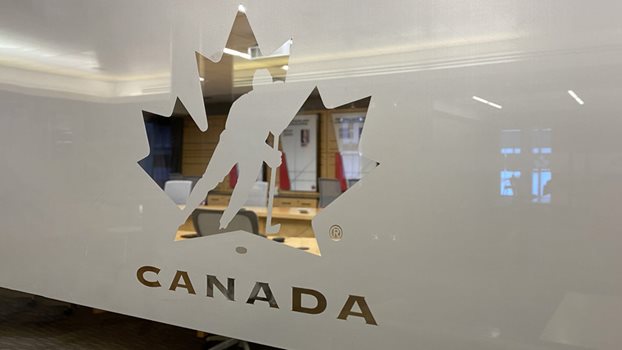
Hockey Canada adds two key staff
Natasha Johnston named director, sport safety; Marin Hickox hired as director, women and girls hockey
CALGARY, Alta. – Hockey Canada has announced that prominent Canadian sport executives Natasha Johnston and Marin Hickox have joined the organization to lead its strategies in safe sport and women and girls hockey, respectively.
“We are thrilled to welcome Natasha and Marin to Hockey Canada in these brand-new positions that focus on advancing two key strategic areas of our organization,” said Hockey Canada president and chief operating officer, Scott Smith. “They both have invaluable experience from across the sport industry and will both play critical roles to ensure hockey is a safe and inclusive sport for all participants.”
As director of sport safety, Johnston will oversee Hockey Canada’s safe sport portfolio, which includes developing sustainable solutions to address player safety and maltreatment. Johnston will also work with Hockey Canada’s 13 Members to deliver strategic initiatives that promote inclusion and provide participants from coast to coast to coast with positive hockey experiences for years to come.
Most recently the executive director of Ringette Canada, Johnston contributed to the Universal Code of Conduct to Prevent and Address Maltreatment in Sport as a national representative, and previously held progressive roles with the Canadian Centre for Ethics in Sport and Football Canada.
Hickox will lead the organization’s recruitment and retention efforts that support the continued sustainability of women’s and girls’ hockey programs across Canada, and drive a collaborative approach to increase the number of women in key roles within the hockey ecosystem, including in leadership, coaching and officiating.
In 2020, Hickox was a member of the women’s hockey task force for the inaugural Elite Women’s 3-on-3 game as part of National Hockey League (NHL) All-Star Weekend. The former Maple Leaf Sports & Entertainment and NHL marketing executive has also consulted for the Professional Women’s Hockey Players Association.
Johnston and Hickox have started their new positions with Hockey Canada, working from Ottawa and Toronto, respectively.
For more information on Hockey Canada, please visit HockeyCanada.ca, become a Hockey Canada Insider, or follow along on Facebook, Twitter and Instagram.

Leading the growth of para hockey
As a veteran Canadian para hockey player, Dr. Peggy Assinck’s goal is to grow the sport internationally and ensure women have a chance to play the game she loves
Growing up, Dr. Peggy Assinck was very athletic. She was not yet identified as being born with spina bifida—a congenital defect of the spine—so she was entirely able-bodied and played a variety of sports.
That’s why when she experienced complications from her condition and became paralyzed from the waist down at age 11, she felt like she lost a bit of her identity.
“It was really difficult to be honest with you, because I think I really self-identified as an athlete,” Assinck, 38, says. “My parents really wanted to find a way to have me be involved in sport, despite the fact that I was dealing with ongoing medical and paralysis-below-my-waist issues.”
A recreational therapist recommended she try one of the only adaptive sports near Peterborough, Ont., at that time: para hockey. Assinck and her family travelled 90 minutes away from home to try the sport for the first time. Although it wasn’t necessarily love at first skate, she was thrilled to meet other kids just like her.
“Because I grew up in such a remote community, I'd never met anyone else in a wheelchair or anyone else using adaptive equipment,” she says. “That was pretty cool just to meet other disabled kids.”
With time, her passion for para hockey grew and flourished. Now one of the veterans with Canada’s national women’s para hockey team, Assinck’s goal is to ensure other women and girls around the world have an opportunity to try the sport she has dedicated her life to.
Ensuring positive experiences for women
One thing Assinck emphasizes is ensuring positive experiences for women when they try para hockey for the first time. As the women’s team holds its selection camp in Yellowknife, N.W.T., from April 25-30, a grant from the Hockey Canada Foundation will assist with providing try-it opportunities and grassroots sessions in the community.
“I want to make sure that more kids and more people who sustained new injuries are getting a good first-contact experience,” Assinck says. “I think the Hockey Canada Foundation grant really helps for the women’s para hockey team to do that in remote communities [and] to help support female-specific programming.”
We believe as a Foundation that girls grow when they play hockey and hockey grows when girls play,” says Alexandra Wise of the Hockey Canada Foundation.
“Working with an organization like Women’s Para Hockey of Canada is something that allows us to align our missions and keep developing the game from a grassroots level, but then also at a higher level," Wise adds.
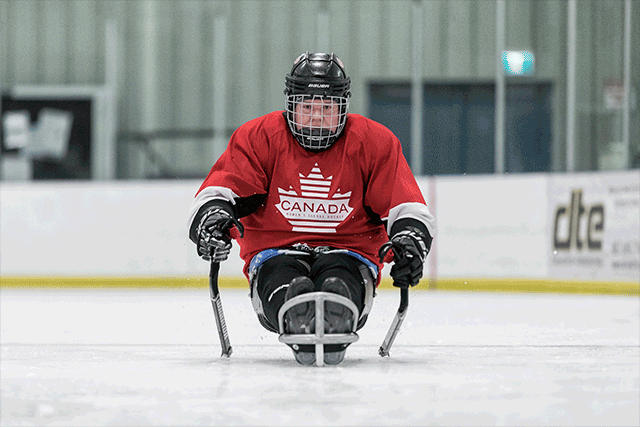 It’s no coincidence that wherever Assinck has gone in her life, women’s
para hockey has grown with her guidance and support. Inspired by wanting to
learn more about spina bifida, she attended Brock University to pursue a
neuroscience degree. As she completed her undergraduate degree, she played
with the Niagara Thunderbirds and volunteered with the Brock Niagara
Penguins, a sporting program for youth and young adults with a physical
disability.
It’s no coincidence that wherever Assinck has gone in her life, women’s
para hockey has grown with her guidance and support. Inspired by wanting to
learn more about spina bifida, she attended Brock University to pursue a
neuroscience degree. As she completed her undergraduate degree, she played
with the Niagara Thunderbirds and volunteered with the Brock Niagara
Penguins, a sporting program for youth and young adults with a physical
disability.
Upon her graduation in 2008, Assinck began her master’s degree and completed her PhD in neuroscience at the University of British Columbia. Looking to continue training as an elite para hockey athlete, she searched for a club team to join in her new home province.
“After growing up in southern Ontario, where para ice hockey was everywhere, I was quite surprised at how little para ice hockey was in British Columbia as a whole,” she says.
Once she joined a team based out of Surrey run by SportAbility, Assinck helped to create new para hockey programs in Vancouver and Victoria, and aided in making opportunities across the province to try the sport. From there, she helped to organize a provincial team with support from BC Hockey.
Traveling across the pond
A postdoctoral fellowship took Assinck overseas in 2017 to the University of Edinburgh and the University of Cambridge. There were a handful of club programs in Great Britain when she moved, and the Canadian quickly joined the closest team to her—the Manchester Mayhem—to continue training.
“I’ve been participating as an athlete on that club team for a while, but I think it became pretty clear that I had a lot of expertise in para hockey, and I got asked about a year into playing here to join as the assistant coach on [Great Britain’s] men’s para ice hockey team,” she says.
Assinck traveled with Team Great Britain to the IPC World Para Hockey Championship, B Pool, in 2019 in Germany.
“I think I was probably the only athlete who was also a coach, I was probably the only female who was also a coach,” she says. “It was a really amazing opportunity to just be on the bench and to help to support the men’s program in what they were doing and in their goals.”
With the addition of coaching on her résumé, a new opportunity presented itself in 2021: the International Paralympic Committee approached the coaches of Great Britain’s men’s para hockey team to ask if they would create a women’s team.
I suddenly found myself with the opportunity to create a team in another country… and it just seemed like the right space for me,” Assinck says.
Assinck quickly got to work. She put out a call for athletes with lower-body disabilities living in Great Britain, interviewed potential players and selected 27 athletes —most of whom had never played para hockey before—for the new program.
Although Assinck was leading the charge overseas, she continued to receive support from Team Canada staff back home. One of the difficulties she encountered was a lack of ice time, meaning she was often teaching a group of athletes how to play hockey without being on the ice.
“She’s spending time in classrooms teaching them the basics of hockey,” says Tara Chisholm, head coach of Canada’s national women’s para hockey team. “She’s renting out gymnasiums so they can do floor hockey and learn about systems that way. She’s literally pulling everything she can together to teach these athletes how to be hockey players in a space that really is not intended to flourish for hockey players.”
Despite the limited resources and the challenges of creating a new team during the COVID-19 pandemic, the newly formed Great Britain national women’s team is prepped to compete at its first international event, the IPC Women’s World Challenge, this fall.
“I honestly do not know how she does everything that she does,” Chisholm says. “I’m very grateful for all the work that she has done that goes unnoticed and that has essentially helped to develop women’s para hockey to where it is right now.”
Growing the game in Canada and beyond
As she created the team, Assinck put together a document of how she kickstarted the program with the goal to share it with other countries so they can replicate the processes.
“That is the big goal right now, to not only grow the game within our borders of Canada, but then to make sure that other girls and women with disabilities across the world have the opportunity to play the sport of hockey,” Chisholm says.
“In order to be in the Paralympics, we need more countries to create teams,” Assinck adds. “We just want to make sure that they have a great first experience and that we’re creating a sustainable program that can continue for many, many years.”
I’m a true believer that if I hadn’t been involved in [para hockey] when I was young, when I was going through the struggles that I had, I wouldn’t be the person I am today,” Assinck says.
Although it’s a bit of an odd position to play against the team you created in competition, Assinck had the full support of her British colleagues to return to Canada and prepare for the Women’s World Challenge. Despite everything she has done to grow the sport, she still prioritizes being the best athlete she can be and she trains hard to earn the privilege of wearing the Maple Leaf on her chest.
She hopes people see her as someone who has dedicated a lot of her life and finances to being an elite athlete, and someone who has gone over and above to support women and para hockey in Canada and around the world. It’s the least she could do for a sport that has changed her life.
“I’m a true believer that if I hadn’t been involved in [para hockey] when I was young, when I was going through the struggles that I had, I wouldn’t be the person I am today,” she says. “I wouldn’t have the confidence to be up speaking in front of thousands of people about neuroscience or even the confidence to be able to be jumping around from team to team in some of my coaching roles.
“I’m hoping that I can look back and feel like I did everything I possibly could to make sure that people with disabilities, particularly women with disabilities, are getting exposure to the sport that means so much to me and could mean so much to them.”
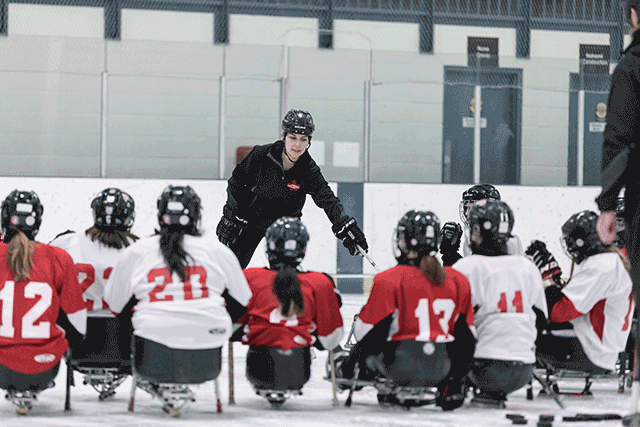
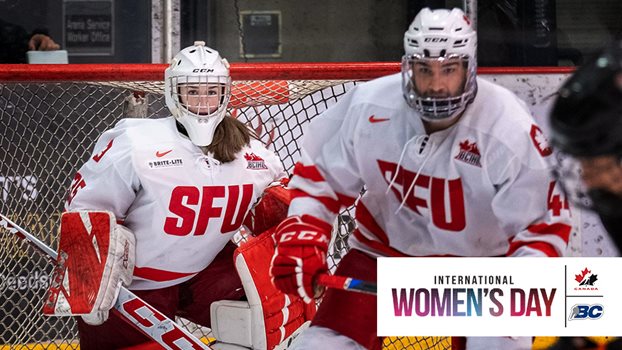
Munro finds her hockey home
The COVID-19 pandemic changed Kayla Munro’s post-secondary plans, but the goaltender landed on her skates at Simon Fraser University, making a little history in the process
The past two years have been anything but normal for Kayla Munro. Like many athletes, the young goaltender’s daily life was shaken up by the global pandemic, as seasons were cancelled and restrictions were put in place. The challenge to find avenues to be able to play hockey became difficult.
For Munro, her journey to continue to play hockey has led her to the unique path of joining the Simon Fraser University (SFU) men’s hockey team. The result has been a talented young hockey player being able to continue in the sport while breaking through barriers.
“I didn't know if I was going to get to play hockey again,” says Munro. “I am just grateful right now to be playing on the SFU team.”
SFU and Munro had a fantastic 2021-22 British Columbia Intercollegiate Hockey League (BCIHL) regular season, going undefeated with a perfect 12-0-0 record. For Munro, she made history throughout the season. She first jotted her name into the BCIHL history books as the first woman to ever play in a league pre-season game on Sept. 25, 2021, when she entered in the third period to take the net versus the Okanagan Lakers. She had a solid outing, stopping 13 of 14 shots in the frame. Munro next made her mark on Oct. 16, 2021, when she became the first woman to start a BCIHL exhibition game, also against the Lakers.
“I was a little bit nervous,” Munro says of seeing her first game action. “Honestly, I hadn't thought about it as being a big milestone. I was nervous because I hadn't played a game in about two years. Last year at Syracuse and the year before that I had shoulder surgery. I talked to a sports psychologist and have learned some really good ways to control my nerves and make them a driving force of how well I play. Although a little nervous, I felt prepared.”
Munro’s crowning achievement, to this point, was on Feb. 5, 2022, when she became the first woman to ever play in a regular season BCIHL game. The 19-year-old took the crease for the third period against the Okanagan Lakers as SFU skated to an 8-5 victory.
For Munro, the original plan was not to rewrite history as a member of the SFU men’s hockey team, in fact it was far from it. Her goal was to play NCAA hockey, and it appeared she had attained that lofty accomplishment when she committed to Syracuse University in New York on a hockey scholarship in 2019.
“It was honestly a dream come true to get the scholarship to Syracuse,” says the product of North Vancouver, B.C. “It had been my goal to play in the NCAA since I started playing hockey. In my opinion, other than the Olympics, it is one of the highest levels you can get for female hockey.”
However, as the world locked down and sports changed, so did Munro’s plans as she chose to stay home with family and not play south of the border. The decision was not easy but was met with support and understanding.
“I went to Syracuse for about a month in 2020,” says Munro. “We couldn't practice or do anything; we were just stuck in our apartments. For family reasons, I decided to come back home. Originally it was just for a semester, but then I decided just to stay home. [Syracuse head coach Paul Flanagan] was supportive. He is an amazing guy. He wants the best for you, and he told me that he wanted whatever made me happy and what was best for my mental health.”
Once Munro decided to stay home in British Columbia, she was left looking for a university to continue her studies. Additionally, she was hoping to find a place to play hockey, a difficult task given all of the restrictions in place associated with the pandemic.
“I applied to Simon Fraser University and was accepted,” says Munro.
With her schooling plans secured, she began looking at hockey options.
“I began looking at everything. Even if they had an intramural team or house league, I just wanted to keep playing.
“I found that SFU had a men’s hockey team and so I emailed [head coach Mark Coletta] asking if I could try out. I told him a little about myself, the teams I played on and the level that I've gotten to in hockey. He was really supportive right away.”
“Kayla needed a spot to play,” says Coletta. “I let her know that she was more than welcome to come try out, and if you're good enough to play, you’ll play. Given her predicament, we wanted to give her a shot.”
The tryout for Munro was successful and after a training camp, she was included on the 2021-22 roster for SFU.
“She can play hockey,” adds Coletta. “She's technically very good between the pipes, she moves around very well. So, making sure she adapts well is the important thing.”
Coletta was clear that Munro made his squad on the merits of her play. He views her as a hockey player, with no designation of gender.
“Kayla’s a tremendous person,” he says. “She's proven every day that she comes ready to work and play.”
Not being treated any differently is something Munro has valued from Coletta.
“He believes that the best players should be on this team,” says the goaltender. “It doesn't matter if you’re a girl or a guy. The first time when we talked on the phone, he said that I was just an equal hockey player, no more or no less. I found that very rewarding and empowering, and it made me feel really good.”
Over the years, Munro has had many positive influences that have helped her as a player and person. While she was with the North Shore Avalanche of the North Shore Female Ice Hockey Association, Munro was first introduced to Jeff Eaton.
“I have two coaches that have stuck with me,” says Munro. “(Eaton) coached a lot with the North Shore Avalanche, came out and did skills with us. Eventually, I got to play for him with the [Pacific Steelers Junior Female Hockey Club]. He's just one of the most knowledgeable hockey people that I know, and so supportive. Coach Eaton just wants to see us succeed and he was the biggest reason why I got my scholarship to Syracuse. I learned a lot of really good things from him.
“The other coach was Delaney Collins. She coached me on the [U18 AAA] Fraser Valley Rush my first year with the team.”
Collins, a fixture on defence with Canada’s National Women’s Team during the 2000s, transitioned her 95 appearances and nine gold medals with the national team into coaching. Collins brought an impressive resume to coaching but also left Munro with a lasting message.
“(Collins) is a big believer in women being empowered,” says Munro. “That we should be considered equal, not just in sports, but everything. I learned from her how to be a confident woman. That it's okay to be strong and have muscles, and not just be dainty and delicate. She helped me find who I was as a goalie and a person. She was a really big role model for me.”
“Kayla was an amazing individual to work with,” recalls Collins. “Her leadership and energy were infectious, and her teammates could count on her to always compete. As a goalie, she was extremely athletic, quick and her puck play was similar to a defender. She is fun to coach and is a great person and role model for young girls.”
After everything Munro has experienced over the last two years, she is well aware that plans can change quickly. However, going forward, the young goaltender has set some goals.
“I want to finish my schooling,” she says. “That’s very important to me. So, for my future, it is continuing my schooling and likely getting a job, while hopefully playing hockey. Honestly, I am grateful to be playing because there was a point I didn't know if I was going to get to play hockey again.”
Munro’s time with SFU will serve her well in the game, and additionally to help build life skills.
“This has been an adjustment for her,” says Coletta. “For Kayla to be able to adapt, I think it will serve her well once this year is over.
“She's worked hard and made a commitment to us. She was ready to play a lot of minutes or play the backup role. Anything to prepare herself for a spot as a starting goalie somewhere next year, whether it's back on the female side or not.”
Through it all, Munro has stayed strong through the challenges.
“During the last few years just staying motivated was my biggest challenge,” she says. “But I'm extremely happy where I am today. I'm very proud.”

Helping in a time of need
When a historic weather event caused devastating flooding and landslides in British Columbia, the hockey community came together to help affected residents and teams
The hockey community is unlike any other. In times of need, hockey families across the country have proved time and time again that they are ready and willing to help their communities.
When record-breaking rainfall hit southwestern British Columbia in November, several local hockey associations came together to support communities that were impacted by devastating flooding and landslides. Here are a few ways these associations and teams worked to help.
Summerland Minor Hockey Association
The Princeton Posse may be a long-time rival of the Summerland Jets, but that rivalry was set aside to put community first after the destructive flooding. When Summerland’s U9 team hosted the Posse, players, parents and staff organized a food drive to send some essential items back with the Posse’s families. Along with the food drive, the team made goody bags for each Princeton player that included packs of Pokemon and hockey cards.
Check out this article on the great work done by the Summerland U9 minor hockey team to help out their rivals from Princeton during these tough times 👏👏 https://t.co/JZ1Fbk323r
— BC Hockey (@BCHockey_Source) November 24, 2021
Greater Vernon Minor Hockey Association
After hosting the Merritt Centennials, the Vernon Junior Vipers’ U11 Development C team invited its opponents for a pizza dinner in a dressing room. Players from the Vipers helped to set up the dressing room before the game, hoping the small gesture would make the Centennials feel supported by other communities in B.C.
There was another act of kindness by the association when the Abbotsford Hawks, who were supposed to travel to Vernon for a tournament, had to cancel their travel plans due to the flooding. According to the GVMHA’s Facebook page, participants and spectators at the tournament worked together to raise $1,000 for the Hawks ahead of the holiday season.
Penticton Vees — British Columbia Hockey League
Following a weekend win in Trail, B.C., the BCHL’s Victoria Grizzlies travelled to Penticton for what was originally planned to be an overnight stay. However, with the historic storm, the team was stuck and unable to travel home.
With the unexpected extended stay, the Penticton Vees stepped up and gave the Grizzlies a dressing room and ice to practice on while they were in town.
"When the puck drops, we want to beat the other team, but we're partners and we wanted to make sure we made their stay as comfortable as possible," Vees president, head coach and general manager Fred Harbinson told CTV News.
The boys are headed home following a very extended weekend on the road due to highway conditions. Thank you @cityofpenticton for everything, the citizens, the @PentictonVees, @pentictonresort and all the local area businesses.#Community #Okanagan pic.twitter.com/crTsC6vhd7
— Victoria Grizzlies (@BCHLGrizzlies) November 17, 2021
Squamish Minor Hockey Association
After the Squamish Eagles U13 A2 team had a game against Chilliwack cancelled due to the storm, the players decided to run a food drive instead. The team gathered outside a local grocery store to encourage shoppers to help fill a hockey net with food to support the Fraser Valley flood victims.
With support from the Cloverdale Community Kitchen for distribution, the Eagles raised $530 and gathered several boxes of food for those affected in Chilliwack.
Squamish hockey team supports flood victims in Chilliwack https://t.co/a0IrZRLHhl
— Surrey Now-Leader (@SurreyNowLeader) November 29, 2021
Mission Minor Hockey Association
When the Mission Stars heard about the historic flooding, the association organized a “Fill the Trailer“ event. From non-perishable food items to things like blankets, winter jackets, socks and toiletries, the Stars ran the event for four hours at a community centre all to give back to communities affected by the storms.
Mission hockey trying to Fill The Trailer https://t.co/qYwSiejQ9U
— Mission City Record (@MissionRecord) November 27, 2021
Ridge Meadows Minor Hockey Association
The Ridge Meadows Minor Hockey U18 C1 team was preparing for a hockey tournament in Abbotsford when the flooding occurred. When the team saw the devastating impact in Abbotsford, it decided to donate $300 to the Abbotsford Disaster Relief Fund to support Abbotsford hockey families and others affected by the flooding.
We are SUPER proud of our U18 C1 team for presenting a certificate of donation, to the Abbotsford Flood Relief Fund, to their @abbotsfordminor opponents during their last game. We are one #hockeyfamily #rustlerpride #rustlerrespect You can donate here: https://t.co/OGXpN2TNpF pic.twitter.com/Eu5ZbSJ2zj
— Ridge Meadows Hockey (@RustlersHockey) November 29, 2021
Cloverdale Minor Hockey Association
The Cloverdale Minor Hockey Association had previously planned a 50/50 draw for its U21 team in December. After the destructive storms in November, the association also wanted to use its fundraiser to support the flood relief efforts. Cloverdale announced that 25 per cent of the proceeds from its 50/50 draw would support victims of the flooding.
Our U21 50/50 has gone ONLINE! Prize will be drawn on Dec 22nd @ 6PM While our tournaments are important fundraisers for our Association, we also want to help the victims of the recent floods. So - 25% of the proceeds will be donated to flood relief! … https://t.co/0y1PmRjsc3 pic.twitter.com/OT7OJi6GfB
— Cloverdale MHA (@CloverdaleMHA) December 10, 2021
North Delta Minor Hockey Association
The North Delta Minor Hockey Association decided to organize an association-wide bottle drive to support the residents of Merritt, B.C., who were evacuated due to flooding. The idea was created and spearheaded by Tam Manery, who was inspired to run the drive when her son’s tournament in Merritt was cancelled.
Although the weather could have been better during the bottle drive, parents and players helped with picking up and sorting bottles. The association says there was a steady stream of bottles and generous cash donations, which will all go towards a great cause.
^^^ Thanks everyone! pic.twitter.com/5I2FdehEt3
— North Delta Hockey (@ndminorhockey) November 29, 2021
Thank you to these hockey teams, and to everyone who stepped up to help their surrounding communities in a time of need. Your positive impacts in your communities have inspired us all to make a difference.

Rallying in lavender
With sticks wrapped in lavender tape, players from Hockey Regina are leading the charge to raise money for the Canadian Cancer Society through Hockey Fights Cancer
Certain colours can hold special meanings and unite communities. For example, when Canadians think of red, we think about the pride of representing the Maple Leaf.
In Regina, Sask., the colour lavender is the talk of the town. That’s because Hockey Regina is running its Lavender Days campaign in association with the Canadian Cancer Society.
“Cancer touches so many, and it’s important to me to have the players remember that there’s bigger stuff than them,” says Joanne Eberle, the media and events manager with Hockey Regina. “The kids really take ownership of it.”
Now in its third year, about 170 teams in Regina participate in the fundraising drive to support Hockey Fights Cancer through November and December. Lavender tape is put on sticks, decals are placed on helmets and the two AAA teams in town wear lavender jerseys that are later auctioned off for the campaign. From Timbits U7 to U18, the players on each team decide how they want to raise money and give back to their community.
“They were pieing their coach, they were doing candy guess jars, they were doing all kinds of stuff,” Eberle says. “We have some teams that will shovel snow, they’ll donate their allowance, or they’ll do a read-a-thon or a walk-a-thon or exercise in some way. We really left it open to all the teams.”
Eight-year-old Aliya Hartney had her own creative idea to help raise money for Lavender Days.
“I did a video and I talked about cancer and why we help people because you want to help people to not lose their loved ones from cancer,” she says.
That sentiment hits close to home for Hartney as her grandmother died from brain cancer when her mother was only four years old. Her video helped to raise $1,505 for Lavender Days.
“I like helping people,” she says. “The more money we raise, the closer we can get to find a cure for cancer.”
The campaign takes on a deeper meaning when people in the hockey community have personal connections to cancer. Following the conclusion of a previous Lavender Days campaign, a player received a cancer diagnosis. Their team responded by bringing back lavender tape for their sticks to show support.
“It’s something that doesn’t just stick with them for the two months that we do it,” Eberle says. “It’s something that they carry through the whole season.”
For the special AAA Lavender Games, each home team chose someone associated with the team that had a cancer story for a ceremonial puck drop. The Regina Pat Canadians chose a 12-year-old hockey player who was battling cancer. The Regina Rebels chose their trainer’s two-year-old nephew, who was also fighting cancer.
“If there was a dry eye in that house, I’d be surprised,” Eberle says. “It was such a big impact, having this little guy come out there and drop the puck and knowing why he was there.”
Daren Haygarth has been a hockey coach for close to 20 years. The support for Lavender Days in his community has had a profound effect on him based on his family’s connection to cancer.
“My sister-in-law has gone through nine surgeries related to a breast cancer diagnosis and gone through chemo,” he says. “When my son tapes up his sticks and writes her name on them, all of those things tug at my heartstrings a lot.”
Last May, Haygarth began his own personal cancer journey. He was diagnosed with prostate cancer and underwent successful surgery in July 2020. Haygarth initially kept his diagnosis private, but over time he began to tell his friends in the hockey community.
“Of course, my family was super supportive, but you start to realize how supportive the hockey world is,” he says. “The support was just overwhelming.”
Haygarth is now cancer free, but the support he received from his community after his experience reinforced how many positives come from a fundraising campaign like Lavender Days.
“There’s no such thing as a tough time where other people won’t be there to help you through it. I think that’s what I’ve really come to appreciate about Lavender Days and the fundraising efforts that go with it. It’s just raising that kind of awareness that things are bigger than ourselves.”
His U13 AA team, the Regina Royals, is running 50/50 draws this month to support Lavender Days.
“I wasn’t surprised [when] one of our parents won the 50/50 and they just donated it all back,” he says. “Our goal is to raise over $1,000 this month, and we’re way beyond probably going to meet that goal.”
Huge congrats to our players on becoming the recipients of a philanthropic award in the Outstanding Youth Philanthropist category! This is for their amazing contributions to Hockey Fights Cancer Thanks Katelyn for accepting on behalf of our players.#hockeyreginafightscancer https://t.co/QVg8VUUudP
— Hockey Regina (@HockeyRegina) November 5, 2021
Although Hockey Regina couldn’t do as much fundraising last year due to the COVID-19 pandemic, it has managed to raise over $26,000 in the past two years. Earlier this month, Hockey Regina’s youth players were the recipients of a philanthropic award for Outstanding Youth Philanthropist for their efforts with Lavender Days.
“That’s really exciting for them,” Eberle says. “It’s a youth award, so it doesn’t have anything to do with the adults… it’s about the players and what they’ve done as a whole.
“This is a great way to show kids that your little efforts can turn into something big.”
The goal this year is to raise over $20,000 for Hockey Fights Cancer. Haygarth credits Eberle for leading the creation of positive social interaction between teams while raising money for a good cause.
“It takes somebody within the organization to spearhead these things and create that culture shift,” he says. “I think Joanne’s been a big catalyst here in Regina towards thinking a little differently about hockey and what being a hockey player means.”
For Eberle, the fact the entire community is rallying around a unified cause while decked out in lavender warms her heart.
“Being able to do this as a minor hockey association as a whole is really exciting,” she says. “It unites everybody. Hockey is competitive, but they [put] that aside and turn into one big team. I absolutely love that.”
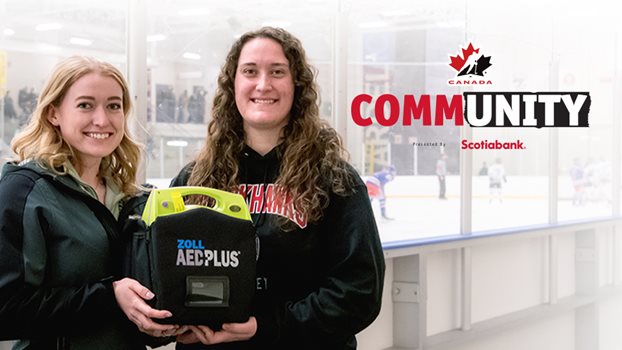
Coming together to save a life
Three Calgary Buffalo Hockey Association trainers were in the right place at the right time, and their quick-thinking – and a powerful community response – saved a player’s life
Sometimes, decisions are made in life that are meant to be. Just like how the little voice in trainer Haley Patyna’s head told her not to forget her medical bag as she went to Cardel Rec South in Calgary on Oct. 7.
Or how trainers Shyin Dixon and Blair Olsen weren’t originally supposed to be at the rink that night, but they joined Patyna to assist her U21 team with baseline concussion testing.
“Looking back, it was kind of wild because it was supposed to be just me,” says Patyna, 24. “But luckily, it was all three of us.”
Ultimately those two decisions are a part of the reason why a life was saved that evening.
As the clock ticked past 10 p.m., only Patyna’s U21 team and a 55-plus recreational league remained at the rink. With their testing complete, the Calgary Buffalo Hockey Association trainers were socializing and catching up in the hallway.
“These two guys came out of the rink where [the recreational league was playing], and they said that they needed an AED [automated external defibrillator],” says Olsen, 23. “They said they had a guy on the ice that was having a heart attack.”
The three trainers sprung into action. Olsen went to grab the AED located at the arena while Patyna grabbed her medical bag. Patyna and Dixon were first on the ice to assist the player.
“He was very obviously in medical distress, really struggling to breathe,” says Dixon, 24.
With the AED in hand, Olsen joined her fellow trainers on the ice, and they began to set up the defibrillator on the player. Dixon began CPR when they noticed the man had stopped breathing and they couldn’t find a pulse.
The trainers’ interventions with the AED worked, and within a few minutes the man was fully conscious and speaking again.
“It wasn’t long at all, granted when we were out there it felt like eternity,” Patyna says. “It was maybe five minutes before he was fully aware, he knew where he was and he knew what had happened.”
As a part of their preparedness for every game, trainers have an action plan to assign who will do what role in an emergency. But the three trainers were not the only ones who played a key role in this situation. The recreational league team on the ice was actively helping in any way it could, from taking off the player’s equipment, calling 911 and providing towels and blankets.
“Even before the paramedics showed up, the team was donating all of their jerseys to help keep him warm on the ice,” Dixon says. “The team was a fantastic help during that, they were there for anything that we needed.”
“I hope those guys give themselves credit for it, too,” Olsen says. “They were quick to give us credit for it, but their effort was just as important.”
Team work makes a dream work or saves a life! All in a days work. So proud of these CBHA trainers. pic.twitter.com/N1T8QCOjUY
— Pam Vega (@PamBradRuby) October 9, 2021
As the paramedics arrived and loaded the player onto the stretcher, he was chatting and joking with his teammates.
“It was definitely a relief to see him going off to the hospital in high spirits and in a good mood,” Patyna says.
Since the night of the emergency, the community reaction Dixon, Patyna and Olsen have experienced for saving a man’s life has been surreal.
“I did not expect it to blow up as much as it did,” Olsen says. “When we left the rink, we just were happy that it had a happy outcome.”
“To all of us, we just did what we were trained to do,” Patyna adds. “We don’t do it to expect a reward out of it. We do it because we love it.”
The incident has also re-confirmed the importance of having AEDs located in public areas.
“They’re very straightforward to use. They come with very detailed instructions,” Dixon says. “Even if it saves one life, it’s 100 per cent worth it every single time.”
“My dad was talking about getting one installed in their office after the whole situation,” Olsen adds.
This past weekend, the player returned to the rink to look for the trainers who saved his life. Olsen and Patyna were there, and they got to speak with him and his family in person to see how he was doing since the emergency.
“That was really nice,” Olsen says. “It was good to see him in as good of a condition as he’s in now.”
Looking back, two things stand out to the trainers: how important it is to always be prepared and how powerful a community response can be in emergencies.
“That was really a team effort that night from everyone,” Olsen says. “If I were to ever go through this again, I would just remember that the people around me are my team, use them.”
“I was amazed at the sense of community that night,” Dixon adds. “It’s insane how people just come together to help one person.”
For more information: |
- <
- >















